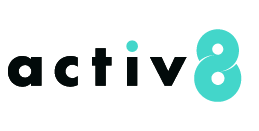What To Do If You Suspect Dyslexia in Your Child

How Private Tutoring Can Help Children with ADHD
September 16, 2019
Anxiety in the Classroom
December 20, 2019Perhaps your child is struggling with reading and writing and you are questioning what might be going on. Maybe reading was challenging for you and you are seeing similarities in your child. If this sounds like you, you may suspect dyslexia. Dyslexia is the most common learning disability, affecting somewhere between 5–10% of the population and occurs along a spectrum of severity. Here are some recommendations for what to do if you suspect dyslexia in your child.
· Trust your instincts. You are the parent and know your child better than anyone. Learning challenges aren’t always lit up like a neon sign. Sometimes, the emotional and behavioral things that you are seeing at home are very telling.
· Take action immediately. Parents are often encouraged to give a child time or wait for them to “catch up”, but early intervention can have a huge impact on a child’s success. Without early intervention, the “reading gap” between struggling readers and their peers continues to widen over time.
· Request testing. Make a written request to the school to do special education testing. It is worthwhile to mention your suspicions and ask that the person doing the testing specifically look for indicators of dyslexia. Alternatively, you can take your child to a psychologist that specializes in private psycho-educational testing. Special education testing is often a very time consuming process, so getting the ball rolling sooner rather than later is wise.
· Advocate for your child or find someone to assist you. It is helpful to understand that you and the school may have different goals and different criteria for what success looks like for your child. An advocate can help write specialized accommodations into your child’s IEP and ensure proper implementation at their school.
· Consider a tutor who specializes in dyslexia intervention. Keep in mind, although classroom teachers are trained educators, they generally have very little specific training about learning disabilities. A child with dyslexia is likely to require outside intervention. It is important to work with someone that has been specially trained in working with learners with dyslexia and how best to meet their needs. Tutoring provides individualized intensive instruction that schools simply can’t provide.
· Don’t rely on school-based reading that isn’t helping your child make steady uphill progress. Most classroom curriculums are not designed for the learner with dyslexia. Just using the regular classroom program is not going to help your child overcome their challenges. Many intervention programs are also not designed for a student with dyslexia. Multisensory, sequential, structured language instruction is the proven remediation for dyslexia.
· Don’t give up. It can take a lot of persistence to get a diagnosis and appropriate intervention. Your diligence is very important.
With these tips, you will be navigating the challenges of effective advocacy in no time. Remember, follow your heart and trust your gut—your child is counting on you.




